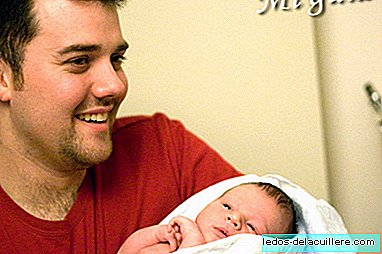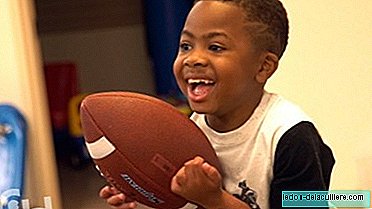
Eating disorders among adolescents are increasingly common, and it is also true that the age at which they begin to suffer is decreasing. As fathers and mothers we know that the most common eating disorders are anorexia nervosa and bulimia nervosa, although there are others that can become quite frequent, as is the case of 'binge eating disorder' or certain food phobias.
Above the existing theories about the causes of these disorders, we find an alarming reality 'most people suffering from anorexia or bulimia' are between 13 and 17 years old. Adolescents are a very vulnerable age group because they are immersed in a period of physical and emotional changes, which are accompanied by pressures from the peer group and many demands on the academic level.
Even more worrying is that there are pre-adolescent children to be guided by trends oriented to social success and the acceptance of others., because it is at this stage of life (from the age of seven or eight) when people begin to forge an idea of our identity, which should be based on solid values, and therefore (ideally) away from external influences .
When a child begins to be affected by these situations, it can be said that he loses control over his will, hence the importance of taking into account the educational and preventive role of the family, since when these disorders appear it is necessary (and inexcusable) to go to a health professional to start addressing them.
Children develop in their families, but at the same time they are influenced by society, and this is more noticeable as they grow and observe models that may differ from those transmitted to them at home. It is not surprising, therefore that eating disorders appear at an early age, when socially new life models prevail in which the external aspect becomes synonymous with happiness, and even health (and of course success).
The role of the family is decisive, because it is the first social nucleus where the child learns to relate, and that is where they must be accepted with their peculiar characteristics. This will be reinforced if the parents also accept themselves. We must ensure healthy lifestyles for children, and food plays a fundamental role: but it is about the little ones learning to eat in a balanced way to stay healthy, not that they 'deprive themselves of eating' to be more successful
The least is the weight (as long as it is not a real problem), but the positive 'self image' will be decisive. This is an idea that we should strive to work as a family through education, and next week we will focus more closely on prevention.
How to determine if changes related to food, or weight can be a problem?
I firmly believe that parents can detect problems in children, even long before they get worse. And we realize the changes in habits or concerns that our children have, and when these changes can turn against them and last over time, when it is not possible to contextualize them and attribute them to situations that we can control , it is time to consult with a specialist.
There are times that people with anorexia or bulimia, start trying to lose weight or 'be fit', but if eating less or being fit becomes a necessity, and these behaviors become addictive. At this point they are difficult to control
Children who suffer from eating disorders are really afraid of looking thick, or think they are overweight when it really isn't. Despite this, the external appearance or the impulse to control what is eaten will not always respond to an eating disorder, so What will parents look at?
- Anorexic people they may be obsessed with food, food or weight control, they also become extremely thin, sometimes they deliberately avoid food without being allergic / intolerant, nor adopt diets due to vegetarian or cultural custom. They also look fat without being and abuse the practice of physical exercise. Other signs of alarm are social isolation from certain social acts (to avoid having to eat the same as others), not having energy or feeling depressed. Many children drink excess water when they know they have a visit with the doctor.
Anorexia, bulimia and other eating-related disorders can cause serious psychological, but also physical problems.
- Bulimic people They panic to gain weight and are very dissatisfied with their body, invent excuses to go to the bathroom after eating, spend a lot of time doing physical exercise to burn calories. They may only want to eat dietary or low-fat foods (except for 'binge eating'), they also usually buy laxatives, diuretics or enemas. And - of course - they are also socially isolated.
The message we want to convey is that since family can be detected, and act accordingly: visit the pediatrician / doctor and then the specialist he determines. And if detection is important, even more so is prevention (it gives us the opportunity to avoid major problems), so next week we will talk about this last aspect.












